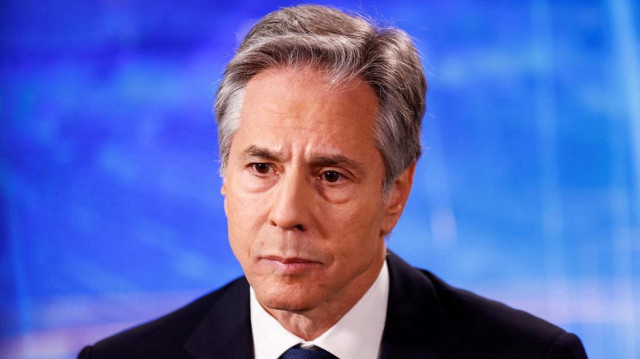
US secretary of state has paid 2-day trip to South Korea in what would be his last visit as top diplomat before Biden administration leaves White House
The US shared “serious concerns” with Seoul after South Korean President Yoon Suk Yeol imposed martial law last month, top diplomat Antony Blinken said Monday.
Blinken was addressing a news conference in Seoul alongside his South Korean counterpart Cho Tae-yul.
“We communicated (serious concerns) directly to the government,” Blinken said as South Korean investigators and police had their last day to execute an arrest warrant against Yoon, who has been impeached after he shocked the nation on Dec. 3 with his martial law decree.
Blinken, however, said the US has “tremendous confidence in South Korea's democracy.”
The US alliance with South Korea, which hosts more than 28,500 American troops, "remains more essential than ever,” said Blinken.
Blinken paid a two-day trip to South Korea, where he held talks with his counterpart Cho Tae-yul, as part of his final visit before the Jan. 20 inauguration of US President-elect Donald Trump.
He also met with South Korea's acting President Choi Sang-mok.
South Korea has been mired in a prolonged political crisis since last month due to the short-lived martial law which has resulted in disarray in state affairs after the opposition-dominated parliament impeached Prime Minister Han Duck-soo, who had taken charge after Yoon's ouster.
Yoon is facing a trial by Constitutional Court which will decide whether he should be removed from office or reinstated.
The 63-year-old embattled leader has become the first sitting president to face charges of treason and insurrection, as well as travel ban.
He also faces an unprecedented arrest warrant which expires Monday after Yoon defied the court order to attend the questioning by investigators.
Presidential security last week blocked the entry of a joint team led by the Corruption Investigation Office for High-ranking Officials (CIO) to detain Yoon.
Now, the CIO has asked the police to execute the arrest warrant, and cases may be filed against those who blocked Yoon's detention.
The investigators will also seek to extend the warrant to arrest Yoon.

